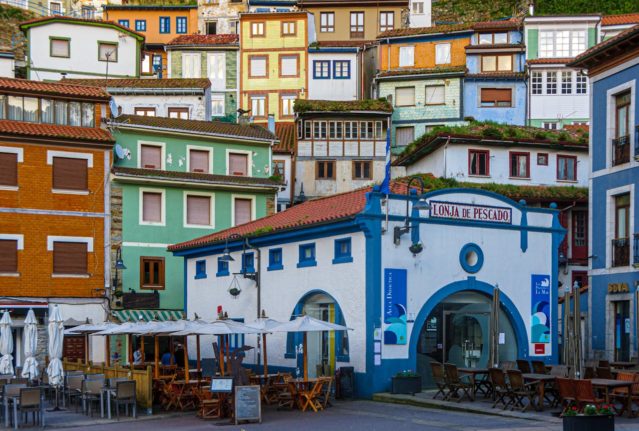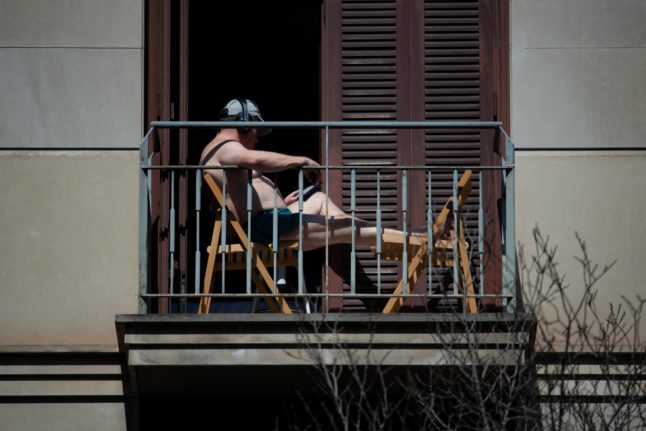There are many examples of people’s dreams turning into nightmares after falling into the trap of unscrupulous property developers, real estate agents and lawyers.
They may speak English and seem friendly, they may even tell you that “this is how things are in Spain”, but that doesn’t mean you shouldn’t do your own checks.
The Local spoke to Ralph de Jong, a Dutchman who in 2020 set up an independent property assessment service after falling victim to a scam himself when he bought a home in Mallorca.
Here are his five steps to avoid ruining your dream (and losing your life savings in the process).
1. Check the property is legal
Many buyers have a wish list when they search for their perfect home, but before you start negotiations, you yourself can check whether property is legal.
Visit the town hall and ask for all documents about to the house. Compare the drawings from Catastro (land registry) and registro de propiedad (property registry) with the actual position of the house itself and not just the plans you have been given.

If the house is illegal they could send the bulldozers in. Photo: Depositphotos.
2. Does it have a valid residence permit?
One of the most important documents to ask for is the residence permit, either the Cédula de habitabilidad or Licencia de primera ocupación, and check if it is valid. Depending on the municipality, this has a validity period.
But beware, every permit is immediately invalid if the property has been illegally renovated or extended.
Consider, for example, a casita, an extension or a swimming pool – even though a real estate agent or lawyer may claim that these illegal works are not known to the municipality, or have been built so long ago that it no longer matters they could still invalidate your permit.
In almost every municipality if a property is Fuera de Ordenación (without the proper planning permission)- which covers all manner of illegality – it will have the following consequences:
- Permits for a (holiday) rental or B&B are no longer valid
- No permits for renovation or rebuild
- The property is uninsured in the event of major damage even if premiums have been paid
- In the event of damage, there’s a chance of lengthy procedures with the municipality in connection with a permit for repair or rebuilding
- If your house is declared AFO (Asimilado Fuera de ordenación – without proper planning permission) in the case of non-compliance with the law (renovation without a permit), you could face a lengthy legal battle.
- No possibilities for new connections to gas and electricity
- Risk of an infracción urbanistica (open file at the town hall)
- Fines
3. Do not incur lawyers’ fees or sign anything before you know that everything is in order
A lawyer is often called in after the negotiations. There are of course costs involved, and these costs usually have to be paid in advance.
If the property is not in order you lose your money. Some real estate agencies also ask for a deposit, so that the house won’t be sold during the process. You will not be the first to have difficulties getting your deposit back if you decide not to move on with the purchase. You should put the deposit on the notary’s account to avoid this pitfall.
Another important thing you should know is that there is jurisprudence that says that if a purchaser used a lawyer in the buying process the purchaser loses his rights on possible claims when problems occur afterwards.
And finally don’t make the same mistake as many purchasers do by choosing a lawyer because of the language instead of by knowledge, professionalism and ethics. Always choose an independent lawyer and not the one recommend by the estate agent, and preferably one that signs an integrity code.

Don’t sign before you are sureof what you are getting. Photo: Depositphotos.
4. Have the house inspected thoroughly
You can try to investigate yourself, but the risks are high so get yourself some independent professional advice.
Any real estate agent or lawyer who says you don’t need to do a full inspection might have something to hide.
5. Do not pay before the property is registered in your name on Registro de la propiedad
In Spain a property is paid for at the notary when you sign the completion.
But what some people don’t realise is that there is a few months between payment and registration of your name on the register. There may be problems with property boundaries, easements, previous owners etc.
But as you have already paid and signed, all problems that might occur will be for you to solve. Do not underestimate the consequences if you were not guided correctly.
Ralph de Jong is part of a team that has developed the IGP-inspection to provide independent assessment of properties ahead of purchasing.
For more information about how to prevent making errors when you buy visit the website: https://www.casapropia.es/



 Please whitelist us to continue reading.
Please whitelist us to continue reading.
Thanks for the excellent article. I’d like to know how one can avoid paying until one’s name is on the Registro de Propiedad if payment is required on completion at the notary. Does anyone have experience of this?